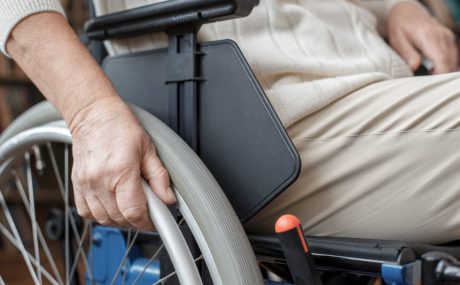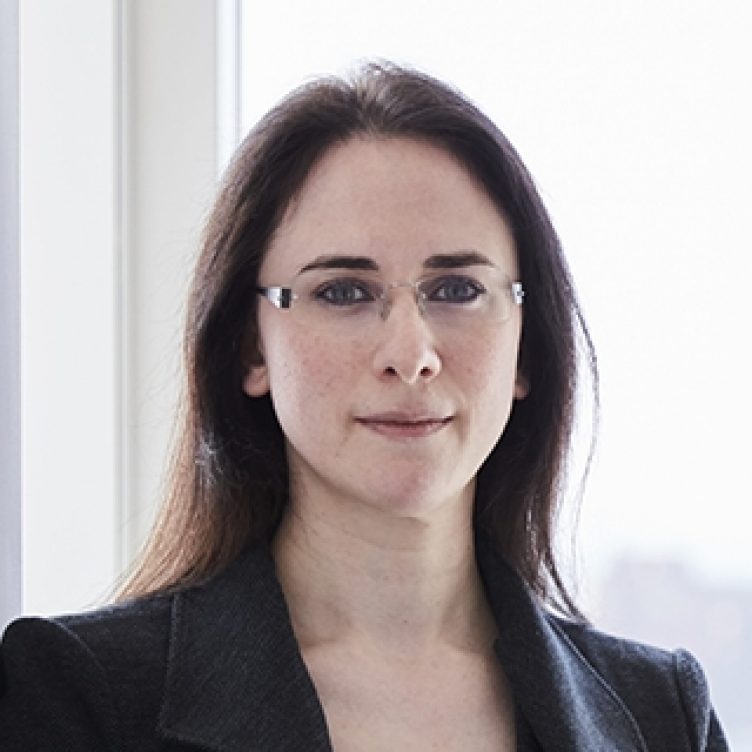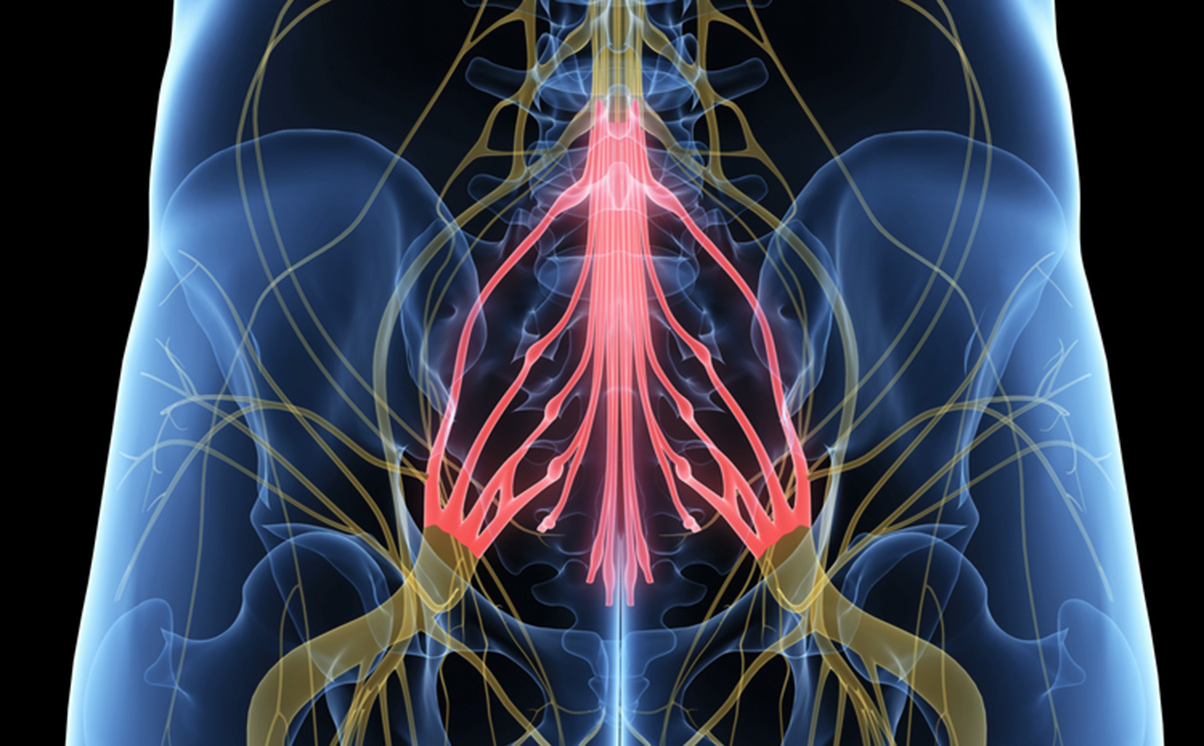Gabrielle Ross outlines a recent case of a client who was left paralysed after receiving innovative surgery to treat back and leg pain. The client, who was heavily involved in the family lives of her children and grandchildren, was left wheelchair bound and needing care.
Background
DD is a widow in her 70s who was born in Germany. She lived independently in Leeds, near two of her five daughters and had seven grandchildren (an eighth was born following her spinal injuries). She was very close to one of her granddaughter’s who lived nearby, then aged 12, whom she took to and from school. On a typical day, the two of them ate together at DD’s house after school and her granddaughter stayed with her until DD’s daughter came home from work. Her granddaughter also stayed over at weekends.
Cooking was DD’s biggest hobby before her spinal injuries and she enjoyed making Sunday dinner. She also enjoyed keeping her home clean and tidy, gardening, going to bingo, and driving to friends or to visit her daughters who lived further away.
Medical issues
In March 2012, after experiencing back and leg pain, DD went into hospital to have an innovative keyhole operation on her lower back, called an extreme lateral inter-body fusion (XLIF). Following the operation, DD remembers waking up and being told she was paralysed. She had sustained a significant cauda equina syndrome.
DD instructed Stewarts to act on her behalf and bring a claim concerning this treatment.
DD alleged there had been a failure to obtain properly informed consent for the procedure, including explaining the uncertainty surrounding the surgery and its efficacy, or advising about alternative methods available for fusion of her spine. The guidance at the time, from the National Institute of Clinical Excellence was that: ‘There is not much good evidence about how well this procedure works or how safe it is’. Had she been properly informed, she said it was more probable she would have opted for well established surgery, if treatment without surgery was unsuccessful.
It was further alleged that her cauda equina was damaged as a direct result of failure to identify, with appropriate x-ray imaging or otherwise, the anatomy of her spine and/or a carelessness in the placement of the metalwork. Upon discovering that the client was paraplegic, it was alleged that it was the duty of her surgeon to take responsibility for her further surgery but instead an extremely complex emergency decompression was left to his registrar. Further, following her operation, the client was allowed to develop pressure sores that required several weeks of bed rest and left her vulnerable to further skin breakdown.
The case
At the outset, the allegations were denied by the defendant save for partial admissions in relation to the pressure sore injury and the fact that the surgeon was negligent in failing to attend the emergency second operation.
The defendant alleged neuro-monitoring was used throughout the procedure. No neuro-monitoring data was disclosed. The defendant advised it had been lost by the private company that developed the equipment. Further, it was argued that the defendant disclosed no images of the L2/3 level of the spine during surgery, the level at which negligence was alleged, save for an image taken after the metalwork had been finally positioned.
After hearing arguments by both parties, at case management conference, the judge gave the client permission to rely on an expert neurosurgeon and an expert orthopaedic spinal surgeon. We argued that this was in order to provide balance, given that the defendant would be relying on an expert neurosurgeon and have the benefit of the evidence of treating neurosurgeons, and as the case concerned a novel procedure.
We made an offer to settle liability on behalf of DD, which the defendant accepted.
Expert evidence on the client’s injuries and condition and prognosis was obtained from eight experts, two of whom were instructed on a joint basis.
On behalf of DD, we argued that she was left wheelchair dependant; she experienced unbearable pain; she lacked sensation and control of her bladder and control of her bowels; she required re-housing to suitable accommodation; she needed ongoing therapies, care, equipment and a suitable vehicle.
The defendant accepted that but for its breach of the duty of care it owed DD, she would have been neurologically intact.
DD’s life beyond injury
The life DD lived before her spinal injury has been largely taken away. She has lost her mobility, she needs care assistance with transfers in and out of her wheelchair, dressing and washing. She cannot drive.
At a settlement meeting around two months before the trial was due to take place, an agreement was reached. DD obtained a significant lump sum and periodical payments for her care and case management needs, for the remainder of her life.
DD has been able to move into a new home, a necessity given her condition. With a wheelchair accessible kitchen in her new home, she is now able to return to her previous enjoyment of cooking.
Testimonial from DD
“Stewarts were very professional throughout the case and I would recommend their services to anyone. They advised on everything I needed and were amazing.
“They had specialist knowledge. I really appreciated their personal approach, whilst remaining professional.
“I felt comfortable the whole time and was not nervous at any point, which is how I had expected to feel. I understood everything they said to me and they made everything so easy.”
You can find further information regarding our expertise, experience and team on our Clinical Negligence pages.
If you require assistance from our team, please contact us or request a call back from one of our lawyers by submitting this form.
Life Beyond Injury
We have teamed up with other clients who have catastrophic injuries to tell their stories of Life Beyond Injury. Please visit the Life Beyond Injury webpages here.
We hope that by sharing these stories, newly injured people can see that with the right support they too can overcome adversity to lead full and active lives.
Please feel free to share our films. You can join in the conversation and share your stories of overcoming adversity to lead a fulfilling life beyond injury:
On Twitter, using the hashtag #lifebeyondinjury.
Or on Facebook, using the same #lifebeyondinjury hashtag.
Media contact: Lydia Buckingham, Senior Marketing Executive, +44 (0) 20 7822 8134, lbuckingham@stewartslaw.com






